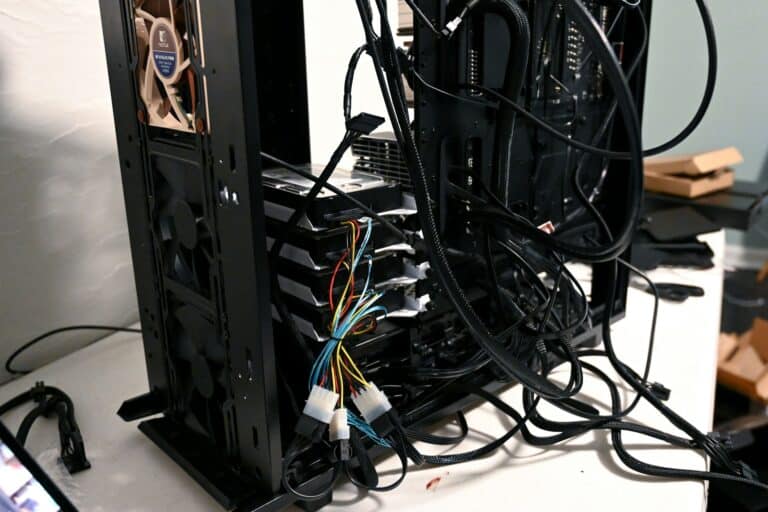Electronics waste disposal is a topic that deserves everyone’s attention. The piles of discarded gadgets and devices in our homes seem to grow faster than we can handle. With new products hitting the shelves each year, the old ones get tossed aside, often without a thought to how this impacts the environment. The issue isn’t just about cleaning up clutter; it’s about understanding the effect our waste has on our world. In regions like Augusta, Columbus, Macon, and Savannah, this concern is particularly important due to the increasing need for sustainable waste management solutions.
As technology continues to evolve, electronics waste is becoming a significant challenge. It’s not just about the sheer volume of waste but the dangers it poses. Improper disposal can lead to environmental hazards, affecting the land, water, and air. The need for effective electronics waste disposal methods is urgent and directly impacts the quality of life in these communities. By exploring the common issues linked to electronics waste, we can better understand how to address them effectively and ensure a safer environment for all.
Common Issues with Electronics Waste Disposal
Electronics waste disposal presents several challenges. One major issue is illegal dumping. People often throw away old devices without thinking about where they end up. These gadgets can leach harmful chemicals into the environment, causing pollution and health risks. It’s essential to find proper disposal methods to prevent these negative effects.
Another challenge is the difficulty in locating convenient recycling options. Many residents find it tough to access centers where they can safely dispose of their electronics. This lack of convenience often leads to electronics gathering dust at home or ending up in landfills.
Data security and privacy are also common concerns. Before recycling electronics, it’s crucial to ensure all personal data is erased. Many worry that their data might be exposed during the recycling process, which can discourage them from disposing of devices properly.
There’s a general lack of awareness regarding what can be recycled. Many people simply don’t know that items like old phones, computers, and chargers can be recycled instead of being thrown out. Addressing these misconceptions can help improve participation in electronics recycling efforts.
By understanding and addressing these issues, communities can work toward more effective solutions to electronics waste disposal, paving the way for healthier environments.
Environmentally-Friendly Solutions
Tackling the problem of electronics waste starts with finding effective, eco-friendly solutions. For residents in Augusta, Columbus, Macon, and Savannah, making use of local recycling centers is a great place to start. These centers often accept a wide range of electronic items, making it convenient to dispose of gadgets responsibly. Taking advantage of these local facilities helps reduce the community’s carbon footprint by keeping hazardous materials out of landfills.
Before dropping items off, it’s helpful to ensure that personal and sensitive data is securely wiped from devices. There are software programs designed specifically for this purpose, which not only delete files but also make recovery impossible. This step is crucial in keeping personal information safe when recycling electronics. Manufacturer take-back programs can also be a good option, as many companies now offer recycling services for their products to encourage sustainable practices.
Community involvement plays a huge role in successful electronics recycling. Participating in local electronics recycling events can boost awareness and offer an engaging way to dispose of unwanted gadgets. These events are perfect opportunities to learn more about electronic waste and to involve friends and neighbors in recycling efforts. Through group participation, communities can foster a culture of responsibility and environmental stewardship.
Steps to Ensure Effective Electronics Waste Disposal
Ensuring electronics are disposed of effectively involves a few easy steps. First, sort through your electronics to identify what’s still usable and what truly needs to go. This not only aids in organization but also ensures that recyclables are handled properly. Next, safeguard your personal information by backing up necessary data and securely erasing everything from your devices.
Finding a certified e-waste recycling center nearby is another essential step. These centers ensure that your electronics are processed correctly while reducing environmental harm. It’s important to check their guidelines for dropping off items or arranging for a pick-up service, which can vary based on location and facility.
These steps make electronics waste disposal safer and more efficient. By adhering to them, individuals contribute to the well-being of their communities and the environment as a whole.
Encouraging Community Involvement
Engaging with the community is key to amplifying the impact of electronics recycling. Participating in local recycling drives not only helps dispose of waste but also educates others about the importance of proper disposal methods. Sharing knowledge with friends and family creates a ripple effect, as more people become aware of how their actions can benefit the environment.
Encouraging schools and local organizations to integrate electronics recycling programs can make a considerable difference. By involving various groups, communities can increase recycling rates and streamline disposal processes, making it easier for everyone involved. Advocacy for more accessible e-waste recycling programs can lead to lasting changes, particularly in areas where options might currently be limited.
Raising awareness and promoting community-driven efforts make electronics waste disposal a shared responsibility. When everyone works together, the collective effort can lead to significant improvements in how e-waste is managed and reduced.
Taking Action and Making a Difference
Addressing electronics waste disposal begins with individual and collective action. By implementing environmentally-friendly solutions and following disposal best practices, we can minimize our impact on the planet. Encouraging community involvement significantly strengthens these efforts and creates a ripple effect that improves recycling habits.
By taking the steps outlined above, individuals can contribute to a healthier environment and set an example for others to follow. Recognizing the significance of responsible e-waste disposal empowers everyone to participate in shaping a sustainable future. As awareness grows and more people take part, recycling electronics will become a natural, everyday habit, leading to lasting positive change.
By taking proactive steps to manage electronics waste, you not only contribute to a cleaner environment but also inspire others to join the effort. Discover how Beyond Surplus can assist with seamless electronics waste disposal and ensure responsible recycling practices that protect both your data and the environment.


